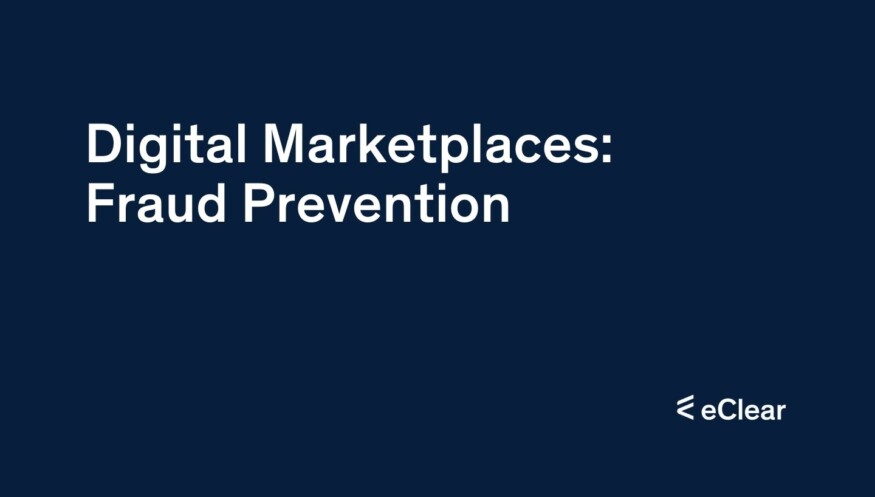Understanding and adhering to tax laws is crucial for legal compliance, maintaining operational integrity, and building market trust. Marketplace operators face a complex challenge due to varying tax obligations across jurisdictions. As their reach expands, so does the risk of tax fraud, potentially destabilising economies and undermining global market trust.
The rise of tax fraud in online marketplaces necessitates more robust preventive measures. Regulatory bodies ramp up enforcement, and non-compliance can result in severe penalties. Marketplaces must foster transparency and develop robust systems resistant to tax fraud.
EU’s Legal Framework
In early 2023, the EU introduced DAC7 regulations mandating online platforms to disclose seller data. This step, part of the EU’s Directive on Administrative Cooperation, aims to bolster tax transparency and streamline information exchange, enhancing VAT and Income Tax compliance monitoring. By January 31, 2024, operators are required to report data for 2023, setting a new standard for digital taxation. DAC7’s applicability to EU and non-EU digital platform operators significantly broadens its impact.
Germany’s Approach: Germany has adopted DAC7 into national law with the Platform Tax Transparency Act (PTTA), enforcing compliance from platform operators starting in 2023. This highlights the urgency for businesses to adapt to these evolving regulations to mitigate non-compliance risks swiftly.
The World of Tax Fraud in Digital Marketplaces
Businesses in the global marketplace face a complex array of tax regulations worldwide. These include varying tax rates, classifications, and compliance requirements. Understanding these international tax laws is crucial for legal compliance and as a strategic element for business success.
In the EU, VAT is essential, especially in cross-border trade. Businesses must navigate varying VAT rates and rules across EU countries. This complex VAT environment offers opportunities for strategic tax recovery and financial optimization.
Proficient management of VAT is more than legal compliance; it’s a strategic factor in pricing, supply chain, and market positioning. Effective VAT management in international trade can provide a competitive advantage, ensuring compliance while leveraging fiscal efficiencies.
The EU’s VAT e-commerce rules, updated in July 2021, streamline cross-border business processes. These changes include the One-Stop-Shop (OSS) and Import One-Stop-Shop (IOSS) systems for simplified VAT handling and removing VAT exemption for low-value imports. These measures ensure VAT is paid where consumption occurs, fostering a fair and competitive digital market in the EU.
Tax Master Data in Combating Fraud
Tax master data refers to the comprehensive collection of data related to taxpayer transactions. This data is crucial for tax authorities as it provides an extensive view of financial activities, enabling them to identify inconsistencies or potentially fraudulent activities:
Identifying Inconsistencies: By analysing tax master data, authorities can detect discrepancies in taxpayer reporting. For instance, a mismatch between reported income and data from other sources like employer-issued forms could signal unreported income.
Detecting Suspicious Patterns: This data helps spot unusual financial behaviours indicative of tax evasion – like frequent large cash transactions or usage of offshore accounts.
Targeting Audits: Tax master data aids in focusing audit efforts on high-risk groups, such as those with a history of tax evasion or operating in susceptible industries.
EU’s Approach: The European Union takes tax evasion seriously, treating it as a crucial cross-border issue. Luxembourg’s law, a case in point, mandates PSPs to report specific cross-border payment data, funnelling this information into the CESOP database. This aids in detecting and preventing VAT fraud by flagging suspicious transactions. The CESOP law is a testament to the EU’s dedication to boosting tax transparency and combating fraud. It outlines specific reporting duties for PSPs, aiming to centralize data and empower tax authorities to tackle tax evasion more effectively.
Challenges for Digital Marketplaces
Digital platforms grapple with varied tax compliance challenges, navigating through a maze of different VAT/GST regulations and constantly changing tax laws. Using tax master data is pivotal in ensuring seller compliance and fostering a transparent business ecosystem.
Practical Strategies to Protect Digital Marketplaces
Precision with Compliance Mechanisms: Digital marketplaces are boosting their defences against tax misconduct by deploying precise tax compliance systems. The EU’s ‘DAC 7’ amendment, effective from January 1, 2023, mandates sharing cross-border VAT transaction data among member states, focusing on online platform-facilitated sales to tackle VAT misdeclaration.
Routine Audits: Marketplaces incorporate regular auditing and verification to ensure transaction integrity. In Germany, marketplace facilitators face joint liability for VAT on sales made via their platforms, necessitating stringent record-keeping and VAT identification number validation.
Collaborative Tax Regulation Adaptation: Digital marketplaces engage with tax experts and authorities to stay abreast of evolving tax regulations. In Germany, marketplace operators must register for VAT purposes and obtain a licence, ensuring compliance but potentially hindering non-resident vendors.
Educational Outreach for a Compliant Community: Educating the marketplace community about tax compliance is vital to maintaining integrity. This involves informing sellers and consumers about their tax responsibilities and the repercussions of non-compliance.
Global Perspectives on Tax Compliance
Around the world, tax authorities are ramping up their game to plug tax leakages and curb non-compliance. Over in the Asia-Pacific, it’s reform season for tax rules, as authorities are on a mission to slash tax avoidance activities. This mirrors a global shift where digital marketplaces aren’t just digital bazaars any more – they’re now key players in the indirect tax collection and reporting arena. It’s a trend that’s redefining the role of these platforms, pushing them into the spotlight as accountable and crucial cogs in the global tax machinery.
Conclusion
Digital marketplaces are navigating a complex yet crucial path in the digital economy, balancing between technological advancements and the challenges of tax fraud. Their proactive stance in adopting sophisticated tools and strategies goes beyond mere compliance; it’s a commitment to integrity and trust. This approach is vital in an environment where scepticism is rampant. As these platforms evolve, they’re not just addressing legal requirements; they’re playing a pivotal role in shaping a fair and transparent digital marketplace. It’s a commendable effort that underscores their responsibility towards maintaining a healthy digital ecosystem, contributing positively to the broader societal and economic landscape.








